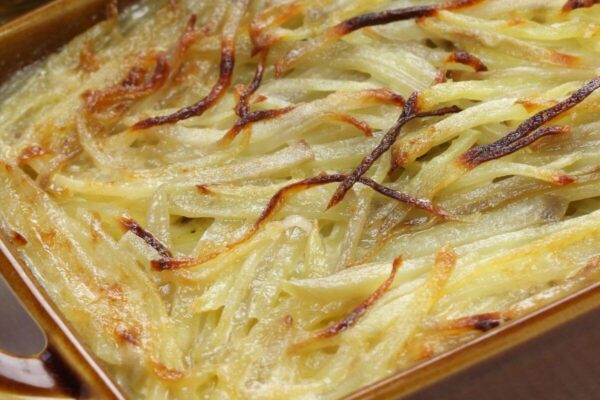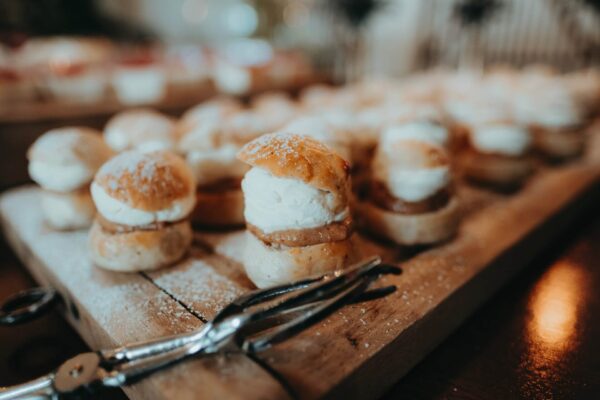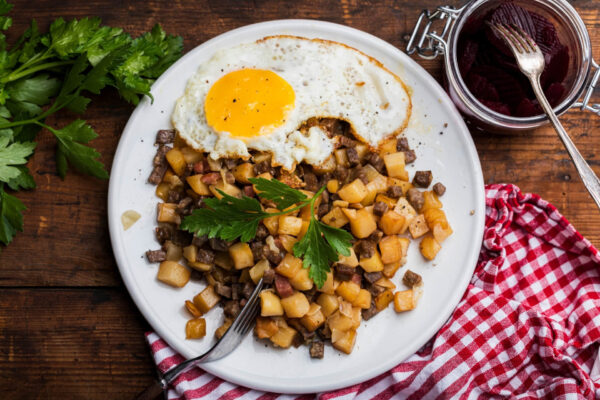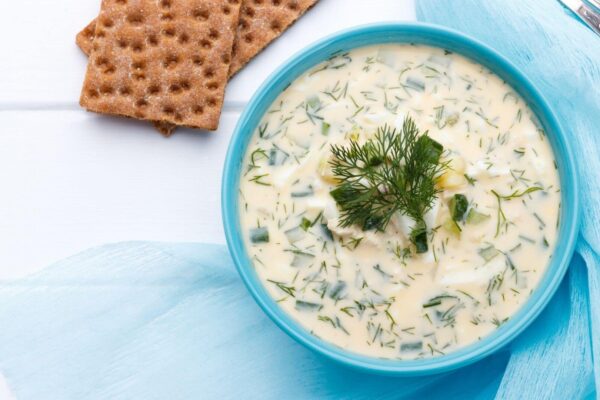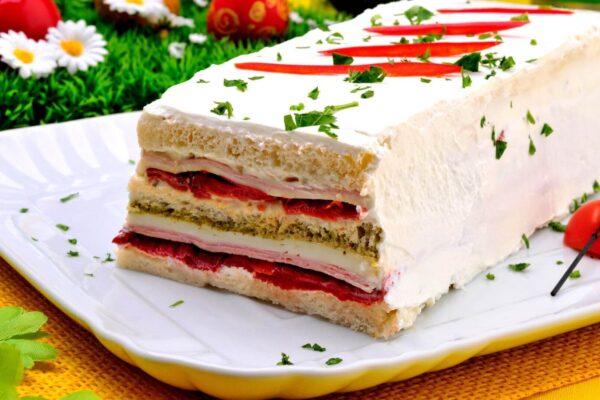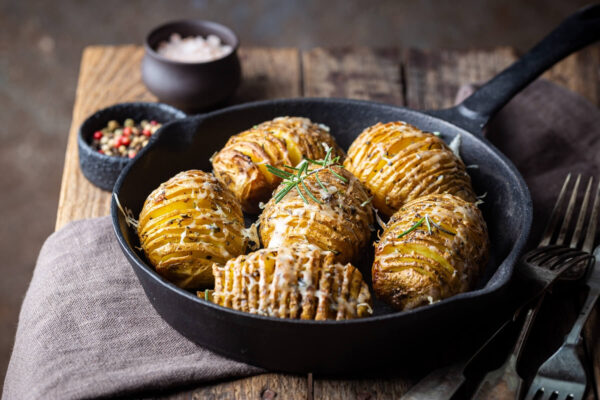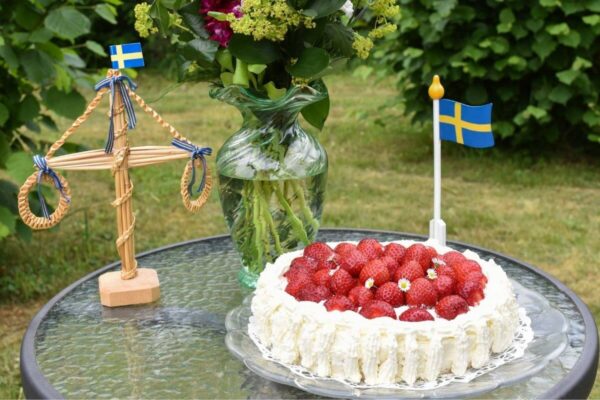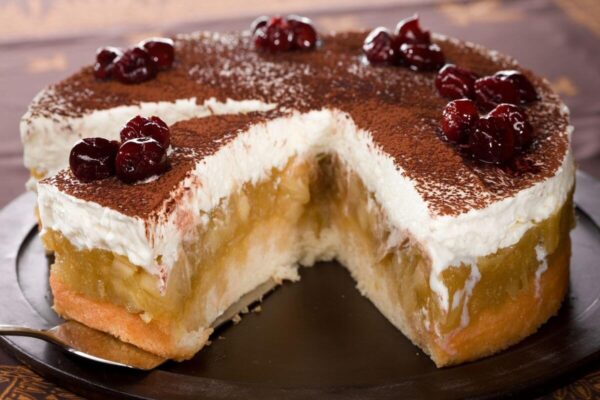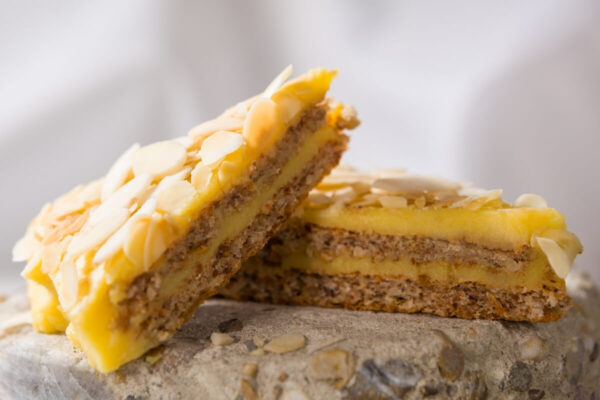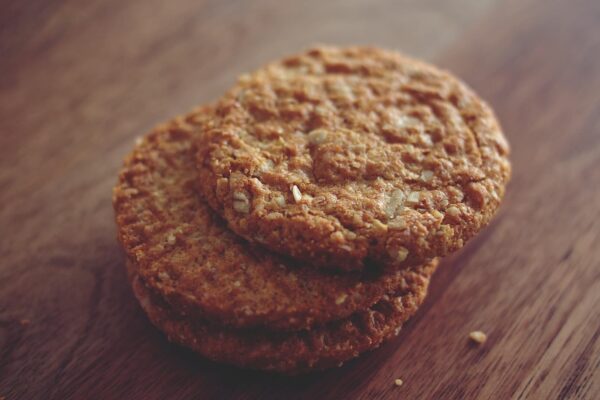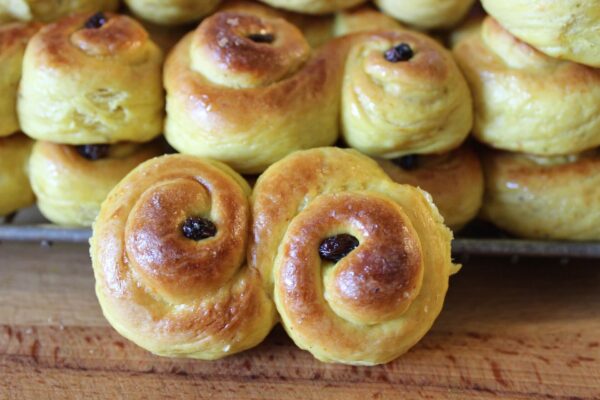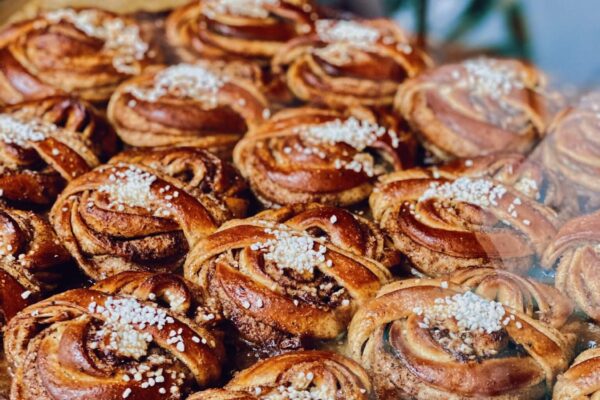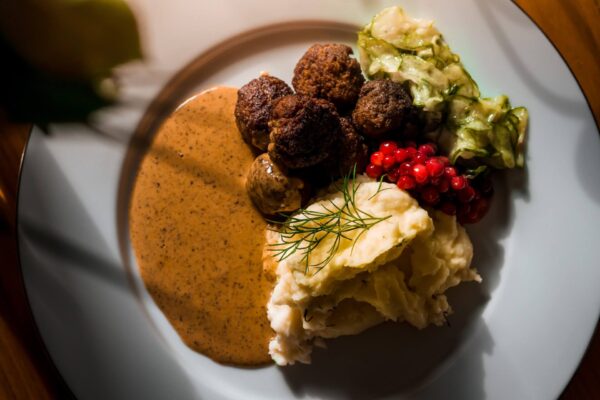Pepparkakor are the traditional spiced gingerbread, or spiced biscuits from Sweden, which are baked and savoured during the Christmas season. They taste of cinnamon, cloves and cardamom, making them perfect to get into the cosy Christmas spirit. In Sweden, however, they are eaten all year round.
Pepparkakor Recipe
- 100 ml Water
- 255 g Sugar
- 50 ml Sugar beet syrup
- 0,5 Tbsp. Cinnamon
- 0,5 Tbsp. Cardamom
- 0,5 Tbsp. Ginger powder
- 0,5 Tsp. Cloves
- 200 g Butter
- 600 g Flour
- 2 Tsp. Natron
- 1 Egg
- 150 g Icing sugar
- Biscuit cutter
- Baking paper
- Ingredients
- 100 ml Water
- •255 g Sugar
- •50 ml Sugar beet syrup
- •0,5 Tbsp. Cinnamon
- •0,5 Tbsp. Cardamom
- •0,5 Tbsp. Ginger powder
- •0,5 Tsp. Cloves
- •200 g Butter
Start by boiling the water, sugar, sugar beet syrup and spices together (important: the spices should all be ground!). Leave the mixture to cool slightly. Then add the butter and stir everything well.
- Ingredients
- 600 g Flour
- •2 Tsp. Natron
Then mix the natron and flour and add to the sugar mixture. Work everything into a smooth dough and let it chill for several hours or overnight.
- Utils
- Biscuit cutter
- •Baking paper
Roll out the dough thinly on a floured work surface and cut out biscuits in the desired shapes. Bake on a baking tray lined with baking paper for 5 to 10 minutes at 200° C top/bottom heat.
- Ingredients
- 1 Egg
- •150 g Icing sugar
For the icing: break the egg and beat the egg white until frothy. Sieve the icing sugar over it. Mix to a cream and pour into a piping bag. Apply to the biscuits and leave to dry.
| Energy | 150 kcal |
|---|---|
| Protein | 2,2 g |
| Fat | 3,8 g |
| Carbohydrates | 27,1 g |
Especially delicious with a cup of hot glögg, the Scandinavian version of mulled wine. Simply pour in the gingerbread and enjoy!
Origin & Tradition
It is not known exactly where the Swedish spice cake comes from. One theory suggests that it was probably modelled on German gingerbread, particularly from Nuremberg. What is known, however, is where the name of the gingerbread comes from: in the 15th century, pepper was added to the dough, which is no longer common today. Instead of sugar, honey was used in traditional recipes. Pepparkakor were already widespread in the Middle Ages and were mostly baked by nuns and sold in monastery pharmacies, as they were said to have a calming effect on digestion.
Pepperkakor stands for the plural, i.e. several gingerbread cakes. The singular is called Pepperkaka in Swedish. Pepper therefore means “pepper”, while kaka stands for “cake”.
They have only been considered a typical Christmas biscuit since the 19th century. Pepparkakans Dag, or Gingerbread Day, was founded by the Swedish manufacturer “AB Annas Peppakakor” in 1996. It is celebrated every year on 9 December.

Typical shapes for Pepparkakor are hearts, stars, Christmas trees and the classic gingerbread man, but you can also find pigs and billy goats. The motif of the billy goat is associated with Swedish Christmas and comes from Nordic mythology. The pig, on the other hand, is a traditional symbol of fertility. In Sweden, gingerbread houses are also common, which consist of slightly thicker baked spice cake held together with icing.
Swedes prefer to eat the delicious spiced biscuits with a hot drink, such as coffee, tea or glögg, the Swedish mulled wine, and dip them in it to make them softer, which is mainly done on St Lucy’s Day. However, it is also common to combine Pepparkakor with blue cheese .
Buying Pepparkakor
Of course, you don’t necessarily have to bake gingerbread yourself, you can also buy them. In Sweden, Anna’s Pepparkakor, which have been produced in Stockholm since 1929, are particularly well-known and popular. They are considered a true Swedish classic and have a flower shape, which is why they can be served all year round.
Baking Pepparkakor
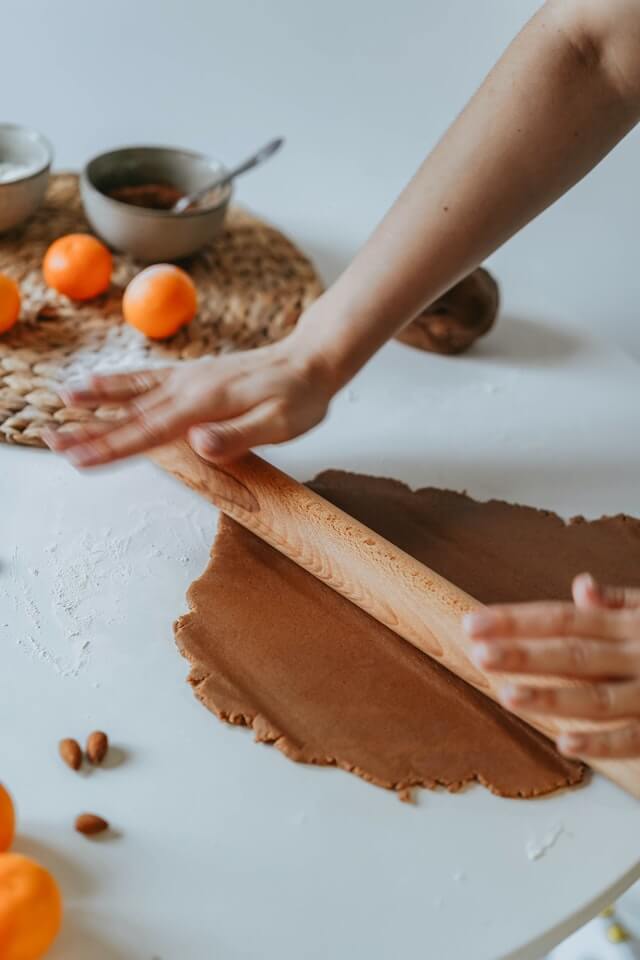
However, baking Swedish pepparkakor is not difficult either. They are cut out with biscuit cutters and baked just like regular biscuits. Then you can decorate them with icing – this is especially fun for children.
If you want the Pepparkakor to be gluten-free, simply replace the flour with gluten-free flour. The same applies if you want them to be lactose-free: Then replace the butter with coconut oil, for example.
One advantage is that gingerbread has a particularly long shelf life. If you bake enough and store it dry in a biscuit tin, you can enjoy it for the entire Advent season.
